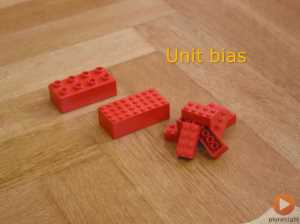Encapsulation and SOLID Pluralsight course by Mark Seemann
My latest Pluralsight course is now available. This time it's about fundamental programming techniques.
Most programmers I meet know about encapsulation and Object-Oriented Design (OOD) - at least, until I start drilling them on specifics. Apparently, the way most people have been taught OOD is at odds with my view on the subject. For a long time, I've wanted to teach OOD the way I think it should be taught. My perspective is chiefly based on Bertrand Meyer's Object-Oriented Software Construction and Robert C. Martin's SOLID principles (presented, among other sources, in Agile Principles, Patterns, and Practices in C#). My focus is on Command Query Separation, protection of invariants, and favouring Composition over Inheritance.

In my new Pluralsight course, I'm happy to be able to teach OOD the way I think it should be taught. The course is aimed at professional developers with a couple of years of experience, but it's based on decades of experience (mine and others'), so I hope that even seasoned programmers can learn a thing or two from watching it.
What you will learn #
How do you make your code easily usable for other people? By following the actionable, measurable rules laid forth by Command/Query Separation as well as Postel’s law.
Learn how to write maintainable software that can easily respond to changing requirements, using object-oriented design principles. First, you'll learn about the fundamental object-oriented design principle of Encapsulation, and then you'll learn about the five SOLID principles - also known as the principles of object-oriented design. There are plenty of code examples along the way; they are in C#, but written in such a way that they should be easily understandable to readers of Java, or other curly-brace-based languages.
Is OOD still relevant? #
Functional Programming is becoming increasingly popular, and regular readers of this blog will have noticed that I, myself, write a fair amount of F# code. In light of this, is OOD still relevant?
There's a lot of Object-Oriented code out there, or at least, code written in a nominally Object-Oriented language, and it's not going to go away any time soon. Getting better at maintaining and evolving Object-Oriented code is, in my opinion, still important.
Some of the principles I cover in this course are also relevant in Functional Programming.

Comments
Dan, thank you for writing. You are talking about this implementation, I assume:
This implementation isn't thread-safe, because File.Exists(path) may return true, and then, before File.ReadAllText(path) is invoked, another thread or process could delete the file, causing an exception to be thrown when File.ReadAllText(path) is invoked.
It's possible to make the TryRead method thread-safe (I know of at least two alternatives), but I usually leave that as an exercise for the reader :)
The only safe implementation that I am aware of would be something along the lines of:
Am I missing something?
Bart, no, you aren't missing anything; that looks about right :) The other alternative is just a variation on your solution.